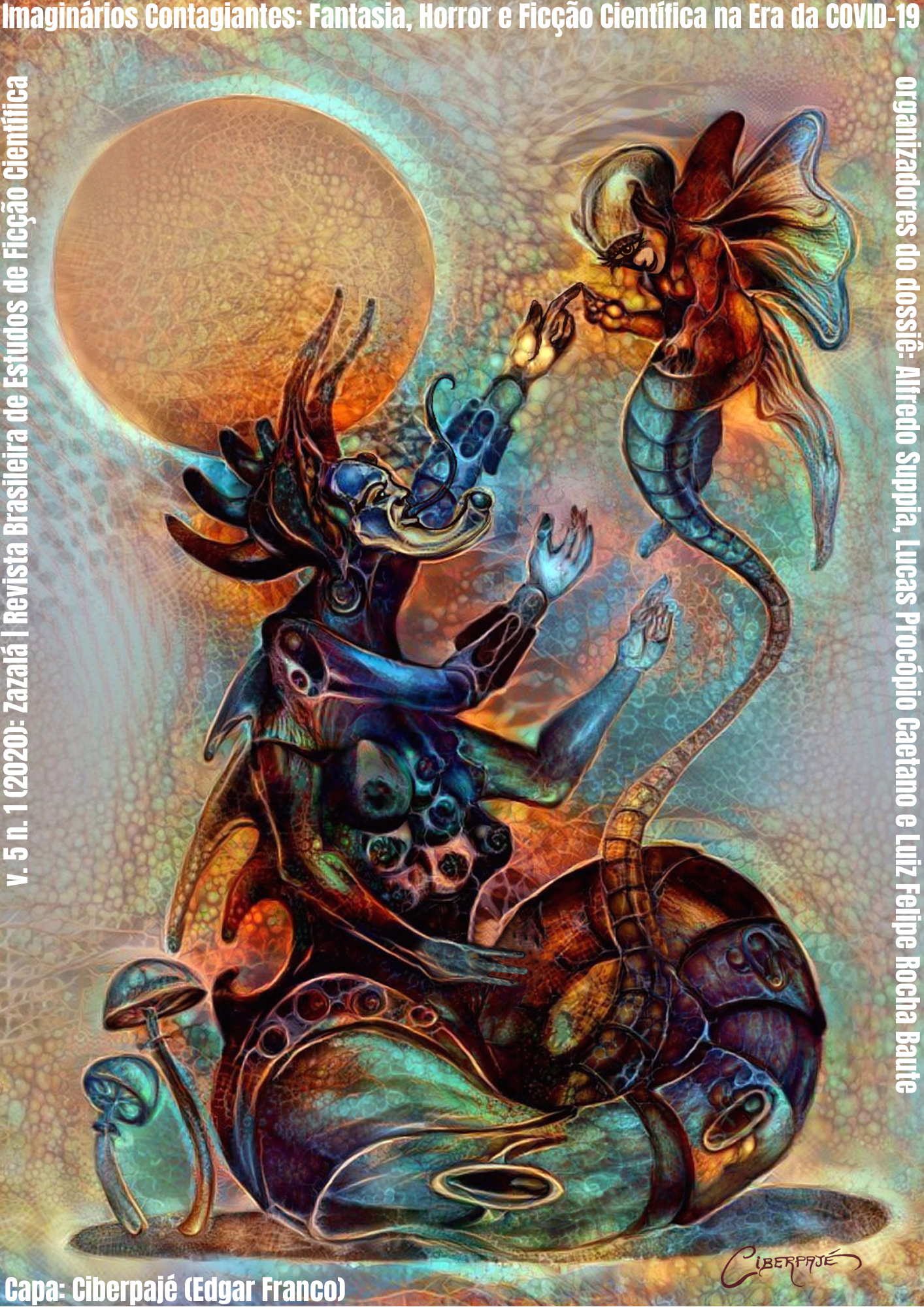Entre a realidade e o assombro
As distopias literárias de Ignácio de Loyola Brandão
DOI:
https://doi.org/10.34019/2236-8191.2020.v5.32705Resumo
Partindo da constatação da significativa popularidade adquirida pelas narrativas distópicas, especialmente quando dentro contextos de crises políticas e sociais como o atual, este artigo pretende lançar luz sobre o entendimento das relações que se estabelecem entre a imaginação distópica e a realidade sócio-histórica em que esta se produz. Neste sentido, observamos as distopias literárias do escritor brasileiro Ignácio de Loyola Brandão em sua radicalização de aspectos do próprio mundo histórico do autor. O argumento é de que os medos e assombros que povoam o imaginário social de uma época, em determinada sociedade, funcionam como uma espécie de referência para a efetivação distópica ficcional, transfigurando, no universo da ficção, as características próprias daquela sociedade através da caricatura de seus elementos e da hiperbolização dos seus mecanismos e dinâmicas. As distopias formulam, assim, uma crítica singular ao seu presente histórico.
Downloads
Downloads
Publicado
Edição
Seção
Licença
Proposta de Aviso de Direito Autoral Creative Commons
1. Proposta de Política para Periódicos de Acesso Livre
Autores que publicam nesta revista concordam com os seguintes termos:
- Autores mantém os direitos autorais e concedem à revista o direito de primeira publicação, com o trabalho simultaneamente licenciado sob a Creative Commons Attribution License que permitindo o compartilhamento do trabalho com reconhecimento da autoria do trabalho e publicação inicial nesta revista.
- Autores têm autorização para assumir contratos adicionais separadamente, para distribuição não-exclusiva da versão do trabalho publicada nesta revista (ex.: publicar em repositório institucional ou como capítulo de livro), com reconhecimento de autoria e publicação inicial nesta revista.
- Autores têm permissão e são estimulados a publicar e distribuir seu trabalho online (ex.: em repositórios institucionais ou na sua página pessoal) a qualquer ponto antes ou durante o processo editorial, já que isso pode gerar alterações produtivas, bem como aumentar o impacto e a citação do trabalho publicado (Veja O Efeito do Acesso Livre).

